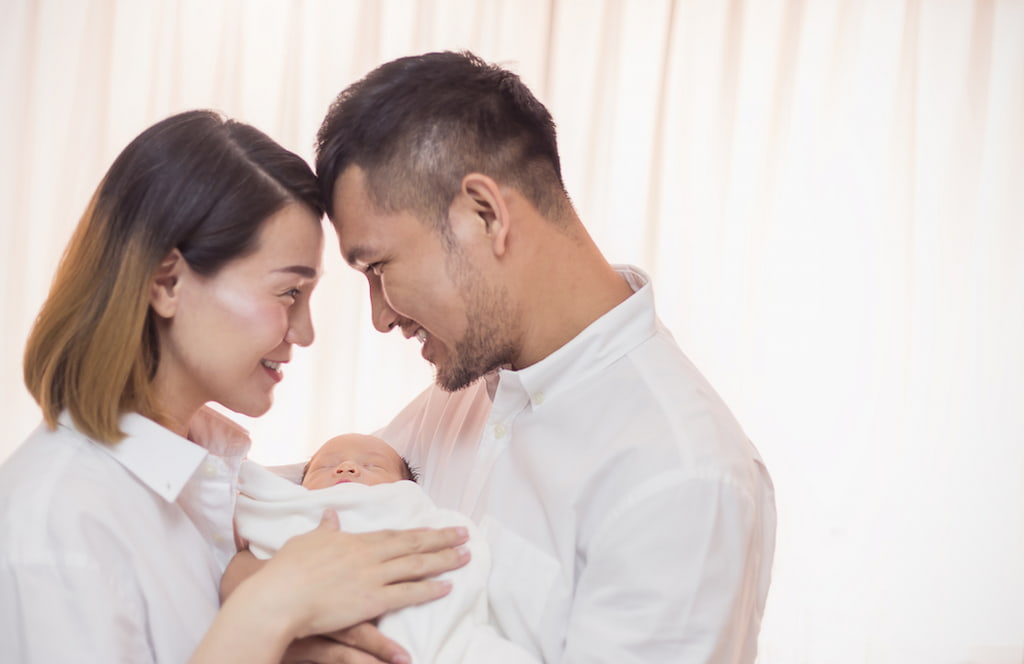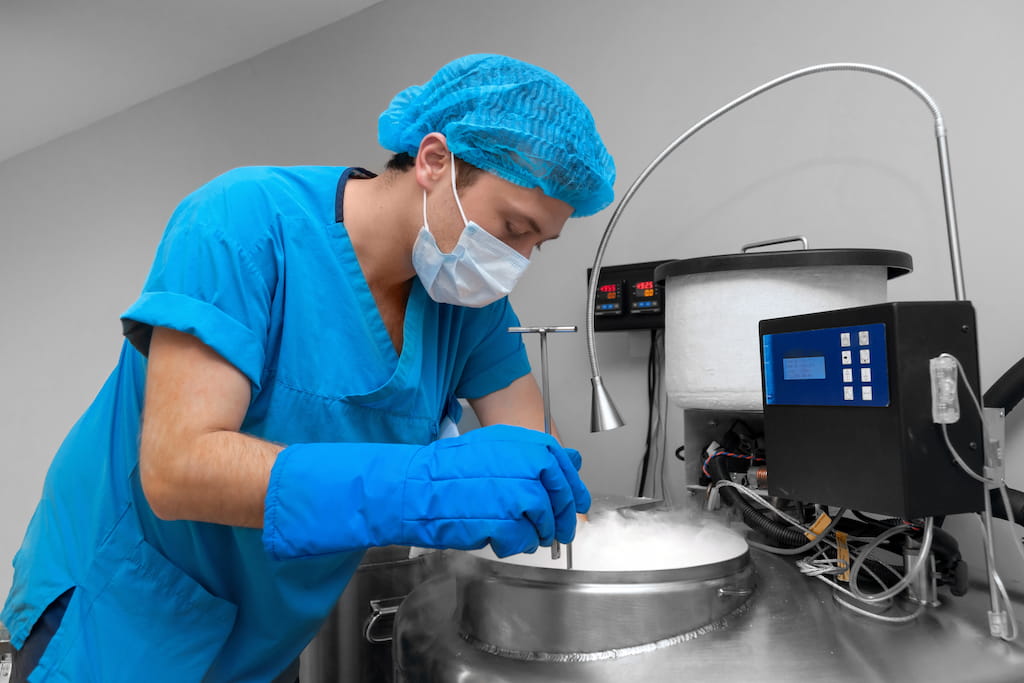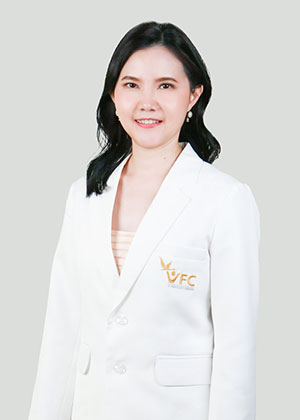
The safest period for a woman to conceive is before she reaches the age of forty, but circumstances may make that natural deadline difficult to manage. Luckily, the egg-freezing program at Vejthani Hospital’s V-Fertility Center allows you to start a family when the time is right for you.
Everyone wants to raise a child in the best environment they can. They want to provide a comfortable home, the best schools and plenty of time to take care of their pride and joy. For some couples, that environment might take longer to achieve than they expected. By freezing your healthy eggs, you can relax and ensure the conditions are right for you as a family before you bring a child into the world.
Egg-freezing as a Safeguard
There are other situations that may make egg-freezing the best or only logical choice for a couple. Cancer can force couples to delay their plans to start a family. Some cancer treatments like chemotherapy or certain drug therapies can have a devastating effect on future ovarian function. By freezing your eggs before you start cancer treatment, you give yourself the best chance of being able to conceive once you’re back in control of your health and cancer-free.
Family medical history can also play a significant role in issues concerning conception. Women with families that have a history of menopause before the age of 40 may want to safeguard their chances by freezing their eggs well before they reach that age.
Couples undergoing IVF treatment who can’t store the male’s sperm on the day the eggs are collected may also find it helpful to freeze the female’s eggs. This allows them to be used in the future without undergoing repeated egg stimulation.
Couples who have to use donated eggs may consider freezing the eggs as they’re donated. This allows the eggs to be tested for sexually transmitted diseases for up to six months after the donation and help guarantee the health of the mother and child.
Finally, women who don’t yet have a family may want to freeze their eggs. Fertility can decrease as a woman ages. For women who are certain they’ll want a child at some point in the future, freezing their eggs while they have them can help ensure they achieve that dream.

Ovulation Induction and Egg Retrieval Process
Before your eggs can be frozen, ovulation has to be induced, and the eggs have to be retrieved. There are a couple of different medications that can be used to induce ovulation. Your doctor generally will work with you, and together you both will decide on the best medications to use and when to use them.
The medications for ovarian stimulation include an injectable medication that contains a follicle-stimulating hormone (FSH). You also may be prescribed a luteinizing hormone (LH), or a combination of both. The medications are used to stimulate more than one egg to develop. Multiple egg stimulation is preferable to provide more of a guarantee that a greater percentage of the eggs will develop normally.
Typically, ovulation is induced one to two days before your eggs are ready to be retrieved. After induction, you may have a vaginal ultrasound to keep track of the development of fluid-filled sacs called follicles. This is where the eggs will mature.
You may also need blood tests to measure your reaction to the induction medication. The tests will measure your estrogen levels which will increase as your follicles develop, while your progesterone levels will remain low until ovulation has occurred.
Once the tests indicate the eggs are mature, you’ll be scheduled for egg retrieval, which is typically conducted on an outpatient basis at the V-Fertility Center. During the process, you’ll be sedated and given medication to help with any pain.
Transvaginal ultrasound aspiration is the standard method used to retrieve eggs. An ultrasound probe is inserted into your vagina and used to locate the egg-bearing follicles. A needle is inserted into an ultrasound guide. The guide goes through the vagina and into the follicles where it retrieves the eggs. The eggs are typically removed by a suction device. The entire process of multiple egg retrieval can take as little as 20 minutes. After the procedure is done, you can expect to experience some cramping and a feeling of pressure in the vaginal area.
Egg-freezing Programs
The V-Fertility Center has egg-freezing programs of different lengths of time, so you can make plans to start your family when the time is right. To learn about the details of the programs, and to receive a checkup to ensure you’re a viable candidate for an egg-freezing program, make an appointment for a consultation at the V-Fertility Center at Vejthani Hospital in Bangkok.
Written by Dr.Sorramon Songveeratham

OBSTETRICS AND GYNAECOLOGY-REPRODUCTIVE MEDICINE





No Comments
Sorry, the comment form is closed at this time.